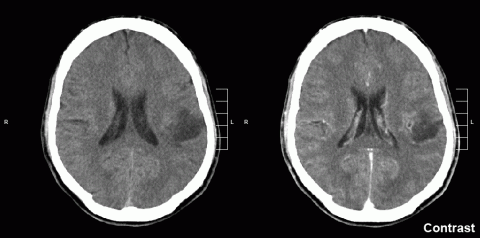Reactions: EMA recommends that codeine-ibuprofen combination medicines warn of possible serious harm
The European Medicines Agency (EMA) safety committee (PRAC) has recommended a change to the information on codeine-ibuprofen combination medicines to include "a warning about serious harm, including death, especially when taken for prolonged periods at higher than recommended doses". The PRAC reviewed several cases of renal, gastrointestinal and metabolic toxicity that had been reported in association with cases of abuse and dependence on these drugs.

Luis Bujanda - EMA codeína EN
Luis Bujanda
Specialist in Digestive System at Donostia University Hospital, coordinator of the Liver and Gastrointestinal Diseases Area at the Biogipuzkoa Institute and professor of Medicine at the University of the Basque Country (UPV/EHU)
NSAIDs are one of the most prescribed pharmacological groups in Spain for different reasons, especially for osteoarticular disorders, but also for other types of pain such as menstruation. Moreover, it is well known that NSAIDs are the main cause of upper and lower gastrointestinal bleeding, as well as other complications such as intestinal perforations. It is also known how, when associated with other drugs such as corticosteroids or anticoagulants, the negative effects on the gut are significantly increased.
Ibuprofen is the most widely marketed non-steroidal anti-inflammatory drug in Spain and the combination with codeine is very rare. Moreover, so far it has not been shown that the combination of ibuprofen and codeine significantly increases the risk of intestinal complications, and less severe ones. This is probably also due to the fact that this combination is rarely prescribed in the population, but so far there is no data to say that the risk of gastrointestinal complications is increased by the ibuprofen-codeine combination.
From a digestive point of view, we do advise restricting the use of anti-inflammatory drugs whenever necessary and taking care in at-risk populations due to the risk of gastrointestinal complications in general. For example, people of advanced age, with a lot of medication, with a peptic ulcer in the past.... These other types of complications may increase the risk of new gastrointestinal complications in these individuals.
It should also be added that there is currently an overdosage of proton pump inhibitors (omeprazole and many others, taken by 25% of the population) in an attempt to counteract this effect, which is often unjustified.
Francisco López Muñoz - EMA codeína ibuprofeno EN
Francisco López-Muñoz
Professor of Pharmacology and Vice-Chancellor for Research and Science at Camilo José Cela University (Madrid), and research member of the 12 de Octubre Hospital Research Institute and the HM Hospitals Health Research Institute (IISHM)
At the last meeting of the Pharmacovigilance Committee for Risk Assessment (PRAC) of the European Medicines Agency (EMA), held on 26-29 September, it was agreed to recommend to the national medicines agencies of European countries to include a new warning in the label and package leaflets of analgesic medicines containing a fixed-dose combination of codeine and ibuprofen. This warning refers to the potential for kidney damage and gastrointestinal damage, as well as abuse and dependence on codeine (an opioid agent) when these drugs are administered at higher doses than recommended and/or for a very long period of time, and is based on numerous cases reported to health authorities, including some fatal outcomes, particularly in countries where these drugs are dispensed without prescription, which is why the EMA also recommends that they should always be dispensed on prescription.
This EMA measure is quite appropriate, especially since analgesic agents are often overused and some of them, such as codeine and ibuprofen, are considered to be harmless drugs with few safety concerns. These pharmacovigilance measures are always to be welcomed, in the interests of greater safety in the consumption of medicines.
Patricia de Sequera - EMA ibuprofeno codeína EN
Patricia de Sequera Ortiz
President of the Spanish Society of Nephrology (S.E.N.) and head of the Nephrology Department at the Infanta Leonor University Hospital in Madrid
Ibuprofen is a drug belonging to the group of non-steroidal anti-inflammatory drugs (NSAIDs) that is commonly prescribed to treat pain and inflammation and, among its complications, in addition to the more well-known lesions in the gastrointestinal tract, there is a risk of acute kidney injury (AKI) that can cause from a mild loss of renal function to severe renal failure, which may require renal replacement therapy with dialysis for the patient. This AKI has little clinical expression, which may lead to a delay in diagnosis. Therefore, the recommendation of the European Medicines Agency (EMA) to include a new warning in the label and package leaflets of analgesic drugs containing a fixed-dose combination of codeine and ibuprofen seems appropriate.
NSAIDs can cause various renal disorders (interstitial nephritis, nephrotic syndrome, papillary necrosis, etc.). Pre-renal AKI, which can lead to acute tubular necrosis (ATN), is the most frequent and relevant. The mechanism is inhibition of renal prostaglandin production, limiting dilatation of renal afferent vessels and thus renal perfusion.
There are risk factors for NSAID-induced AKI such as Chronic Kidney Disease (CKD), especially stage 3-5 CKD of any aetiology (glomerular filtration rate <60 ml/min), states of effective circulating hypovolaemia (dehydration, heart failure, cirrhosis, etc), advanced age, treatment with angiotensin-converting enzyme inhibitors (ACE inhibitors) or angiotensin receptor antagonists (ARBs) that limit the constriction of efferent renal vessels, and concomitant use of other nephrotoxic drugs. Therefore, in patients at renal risk, their use should be avoided to prevent NSAID-induced AKI. It is important to inform patients of the risk, avoid chronic use of this drug as well as concomitant nephrotoxic drugs and dehydration.



